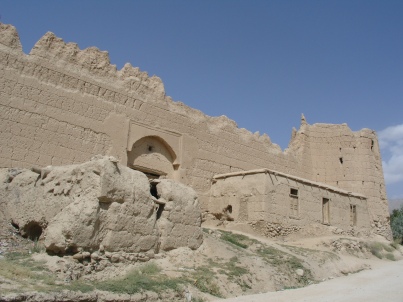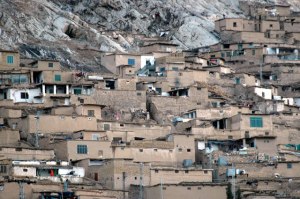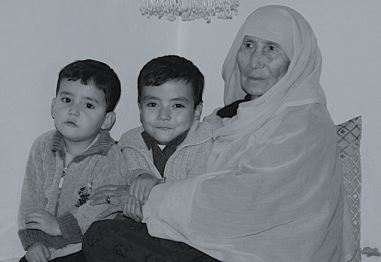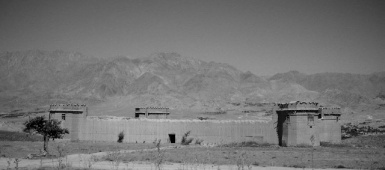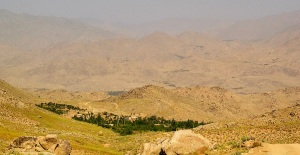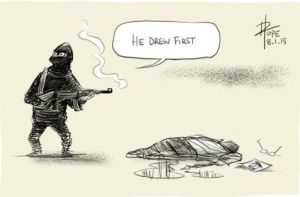We lived isolated lives high in the valleys. We were strangers to the changes in the world, or rather they were stranger to us. By the time I first got to watch TV, I had already raised many children. Let alone televisions, many of us had barely seen a vehicle or an airplane.
Your late aunty from Hotqol visited Kabul. One morning her hosts turned on their pocket radio to listen to the news. Upon hearing a male voice, your auntie covered her face to do purdah. She noticed that the women of the host family did not cover their faces, did not observe purdah. She was old, and she immediately scolded them:
“You have no shame! There are strange men there, and you dare let them see your faces!”
When I visited Kabul, we would gather at Aatay Hafiz’s basement at night to watch TV in secret. He owned a small television set that was easy to hide and put away during the day. Your maternal grandfather was a strict man. He disapproved of television, and called it Haram. We made sure he didn’t find out we all watched TV.
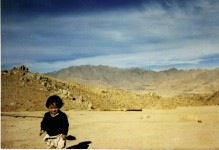
It is said that in the Pas-Qad valleys, when the women first saw a car, they assumed it was a type of animal they had never seen before. They called it pesh-ghorghoor-e-pas-khaagbad – literally translated as the thing that ‘makes noise at the front, and blows dust at the back’. Some women even threw grass in front of the car, assuming that if it was an animal, it had to eat grass.
That’s how strange these machines were for our people. Things have changed now. Nothing can surprise me anymore.
*Purdah = a religious and social practice of female seclusion prevalent among some Muslim communities; the practice of females covering their faces in the presence of a non-family male
*Haram = Arabic term meaning sinful; Items and practices forbidden in Islamic belief
*Pas-Qad = Backward; A derogatory term used to refer to those living deep in the mountains
